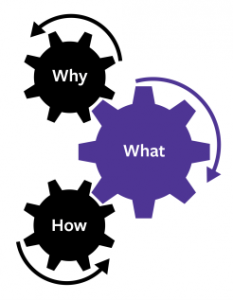Learning Couture founder and CEO, Andrea Stewart, co-authored the newest report from the Aurora Institute’s CompetencyWorks along with senior researcher, Wendy Surr, and Executive Director of the QED Foundation, Kim Carter. This new resource offers a comprehensive, research-backed analysis of how education systems can support the transition to learner-centered education by tapping educator mental models, motivations, and moves. For those responsible for and interested in professional learning, this resource offers steps that educators can take today to shift their practice to advance learner-centered environments.
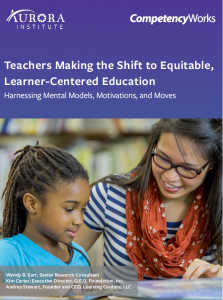
This post is the first in a series that provides context for the ideas, theories, and research in the new report from CompetencyWorks, Teachers Making the Shift to Equitable, Learner-Centered Education. Senior researcher and author, Wendy Surr, shares an overview of the The Promise, The Problem, and The Opportunity, providing a springboard into the blog series as a whole:
Caution: Change Ahead! How Harnessing Emotions and Motivations Can Help Drive Change for Equitable, Learner-Centered Education
Sabotage! How Our Implicit Biases and Mental Models Keep Us From “Walking the Talk”
Old Habits Die Hard: How to Build New Moves and Habits to Sustain Change
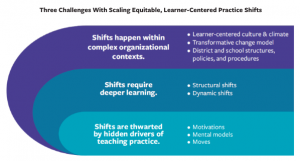
Kim Carter, Executive Director of the QED Foundation, describes in this post how states, districts, and schools can start with the “why” of change by creating relevance, fostering receptivity, and building agency within adults. She draws on her extensive experience with school transformation to share ways we might re-think risk aversion as a natural part of a change process, and how we might leverage individual and collective motivations to build trust, safety, a sense of competency, and a drive for change.
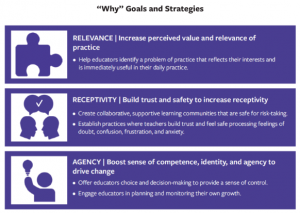
Cognitive scientists suggest that we all hold implicit biases and theories – referred to as mental models – that represent our deeply held beliefs and conceptions of the world. Senior researcher, Wendy Surr, explains how we can help guide change by crafting new driving theories.
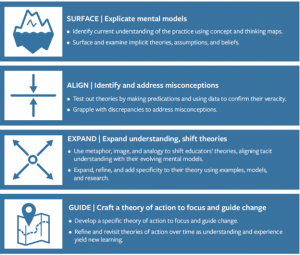
Even when we are equipped with a clear plan of action and have high motivation and support, as humans we can still struggle to adopt new practices. Learning Couture CEO, Andrea Stewart, takes a look at how to build new moves and habits to sustain change.
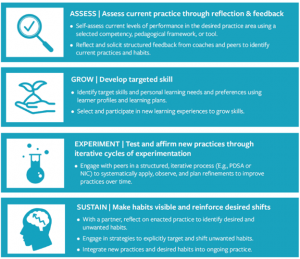
These specific exercises and resources are designed to be used and adapted for your context. Explore the strategies designed to address the why, what, and the how.
